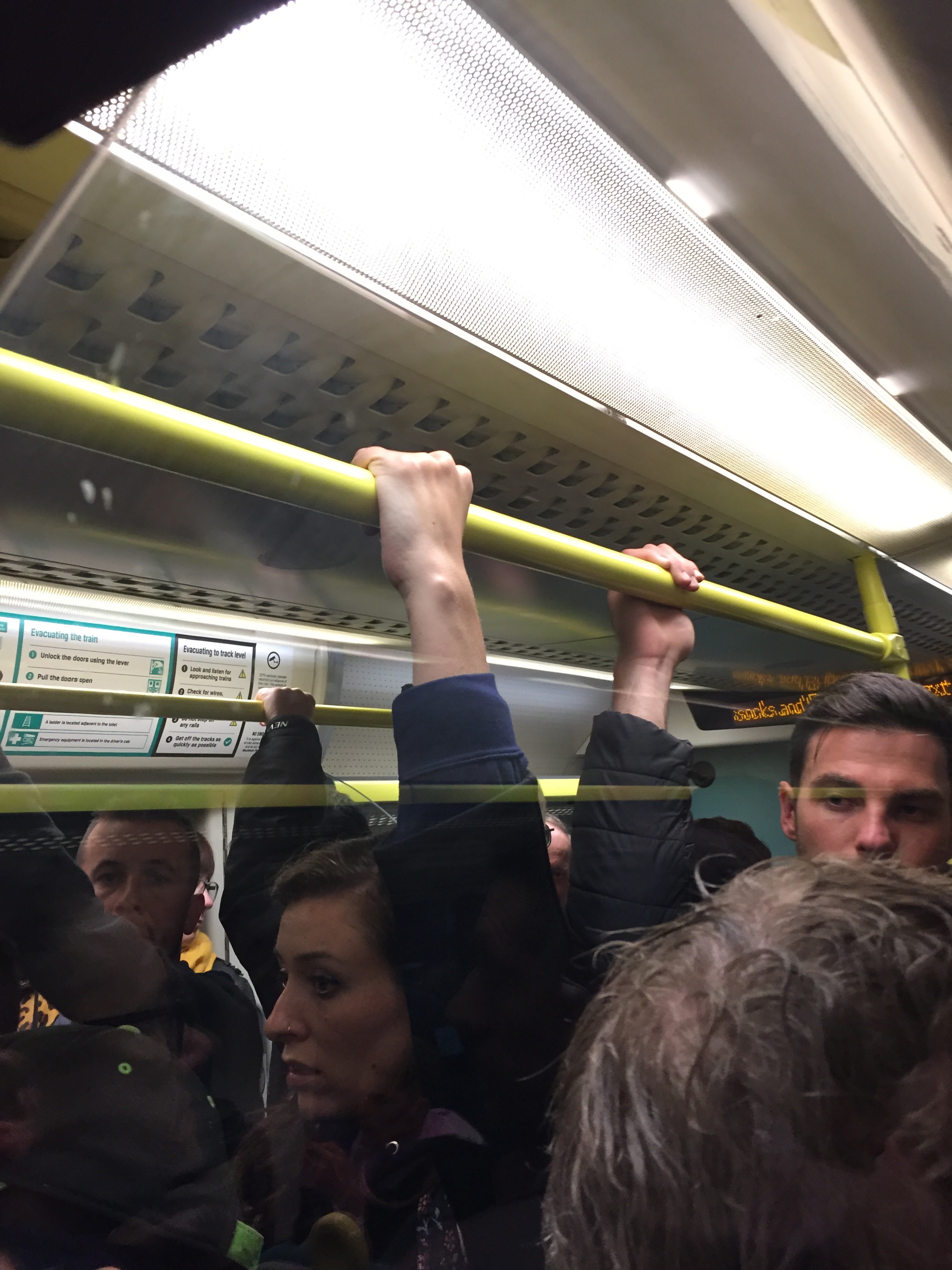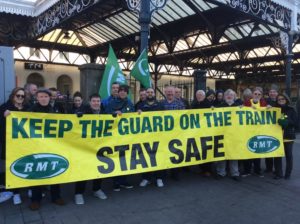Southern and Thameslink trains have been the worst performers on the rail network, according to an official report by a government watchdog.
They have failed to give “long-suffering passengers” value for money while bosses and civil servants st the Department for Transport (DfT) were also criticised for their role.
Almost four in ten trains that were cancelled were short of drivers or crew, with industrial action and a failure to recruit and retain enough staff being blamed.
As a result passengers have been paid £33 million in compensation for poor performance, including delays and cancellations.
The DfT and Govia Thameslink Railway (GTR) were criticised in the report by the National Audit Office entitled The Thameslink, Southern and Great Northern Rail franchise.
NAO head Amyas Morse said: “Over the last three years long-sufferings passengers on the Thameslink franchise have experienced the worst performance on the rail network.
“Some of the problems could have been avoided if the department had taken more care to consider passengers in its design of the franchise.”
Separate services were combined to create the franchise, in part because of the extensive upgrade. Some disruption was anticipated but officials wanted the work to happen as smoothly as possible including the modernisation of London Bridge Station.
The report, published yesterday (Wednesday 10 January), said: “The resulting franchise contract is complex and ambitious and it is not clear whether the department considered the cumulative effects of its approach on passenger services.
”The franchise is the largest franchise in the country, bringing together two previously separate franchises including four major London train services, all of which are affected by the Thameslink programme.
”It operates on a very congested part of the network where the underlying infrastructure is unreliable.
“The department wanted to increase capacity and improve services. The franchise contract also included commitments to increase the extent of ‘driver-only operation’ beyond the department’s original specification and included additional train services.
”The department had not developed fully how the individual elements would work together within the contract, nor the potential effects on passengers, particularly if the risks it identified around industrial action crystallised.
“Between September 2014 and September 2017, Govia Thameslink passengers have experienced the worst overall service performance on the national rail network in terms of the number of trains arriving on time.
“Additionally, since Govia Thameslink took over the running of Southern services in July 2015, around 146,000 services (7.7 per cent of planned services) have either been cancelled or have been delayed by more than 30 minutes, compared with 2.8 per cent on the rest of the network.
“The number of trains arriving at their destination within five minutes of their scheduled arrival time fell to 62 per cent in November to December 2016 during industrial action.
”Since the start of 2017 service performance has been improving. The percentage of trains arriving within five minutes of their scheduled time has exceeded 80 per cent since March 2017.
”This level of performance is similar to levels at the beginning of the full franchise operation in July 2015.
“The main cause for cancelling services was driver or train crew availability.
“It is difficult to attribute delays and cancellations to specific causes because the railway is a complex system.
“However, based on data produced by Network Rail and Govia Thameslink about services cancelled, around 56,000 cancellations (38 per cent of the total) were related to the availability of drivers and other train crew.
“The department and Govia Thameslink consider, from their analysis of performance data, that industrial action was the most important cause of train crew shortages.
“Other important causes of delays and cancellations include the reliability of some train fleets, Network Rail’s management of the rail network, and failures of track and other infrastructure assets such as signalling.
“The department accepted Govia Thameslink’s ‘driver-only operation’ plan and, recognising it would increase the risk of industrial action, contracted some contingency arrangements.
“The department did not fully evaluate the possible effects on passengers of different scenarios of industrial action before awarding the contract, nor did it ask Govia Thameslink to do so.
“The department did not seek sufficient assurance that Govia Thameslink would have enough train drivers when it took on the franchise.
“When a new operator takes over a franchise, it can expect to inherit drivers from the previous franchisee.
“Govia Thameslink received fewer drivers than it expected from the previous operator of the Thameslink and Great Northern routes and driver shortages have persisted on Great Northern services.
“Even if Govia Thameslink had received the number it expected, there would still have been some shortfall.
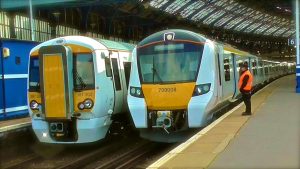
“The department and Network Rail did not have a good understanding of the underlying condition of the existing network at the point when the department set the requirements of the franchise.
“Between July 2015 and March 2017, 13 per cent of all cancellations and delays to services of more than 30 minutes have been due to failures of track and other Network Rail assets such as signalling systems.
“While the department’s franchise design took account of the need to deliver the Thameslink programme, it did not consider the underlying state of the network.
“In 2016 Network Rail estimated that an investment of up to around £900 million (cash prices) on maintenance and renewal work was needed to achieve the resilience needed to run the new services on the Thameslink network reliably, in addition to infrastructure investments already planned in that area.
“Limits on access to the railway means that Network Rail has prioritised a £300 million programme of work … to improve particularly vulnerable parts of the network.
“The franchise has delivered some improvements for passengers.
“The Thameslink programme is now delivering benefits to passengers through station improvements and more spacious trains.
“The department has decided to introduce new services more gradually than originally planned, deferring the full benefits of the programme by one year.
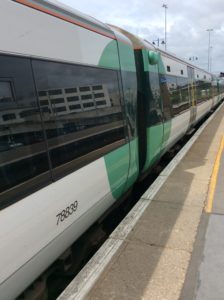
“We think this is a sensible step to protect value for money and passengers from further disruption.
“The franchise has introduced new trains on Gatwick Express services and on the Great Northern route.
“Despite the performance of train services, fare revenue returned to the department met its expectations.
“Between September 2014 and August 2017, the department received £3.6 billion in fare revenue, which is broadly in line with its expectations at the time that it let the contract.
“During the same period it made franchise payments to Govia Thameslink of £2.8 billion, meaning that it has earned a return for the taxpayer of £760 million, net of £33 million of passenger refunds paid by the department to compensate for disruption.
“The Department considered its options for the future of the franchise including terminating the contract but decided that enforcing the contract was the most appropriate option.
“It did not pursue terminating the contract because there were insufficient grounds. The most significant reason for disruption was industrial action, a ‘force majeure’ event in the contract, meaning that the operator could not be held responsible for the resulting poor performance.
“The department and Govia Thameslink have agreed a £13.4 million settlement covering the period to September 2018 … comprising
- £2.4 million for its underperformance between September 2015 and September 2016
- £10 million as a settlement for the period up to September 2018, to avoid further protracted analyses and negotiations over the financial impact of performance during that period and
- £1 million for franchise management issues unrelated to service performance
“Instead of paying the department, Govia Thameslink will spend the agreed sums on various measures aimed at improving services for passengers, including extra train crew.
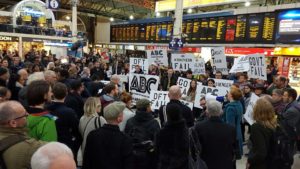
“The department also expects to pay Govia Thameslink for the additional costs resulting from changes to the department’s requirements.
“At the time of writing this report, the department and Govia Thameslink were discussing contract changes which are expected to result in a payment by the department to Govia Thameslink, potentially amounting to tens of millions of pounds a year.
“The changes are needed because the department has agreed to alter the train services required in the franchise contract and to reflect delays to the delivery of new trains for Thameslink services. The franchise contract anticipates and allows for such changes.
“The Thameslink programme has a realistic chance of achieving value for money and the return to the department from the franchise has broadly met its expectations.
“However, passengers have suffered periods of significant disruption during the first three out of seven years of the franchise.
“While industrial action has been a major contributor to disruption, on a scale which would have been difficult for the department to foresee, the department did make decisions on this franchise, the cumulative effects of which have negatively impacted on passengers.
“We cannot therefore conclude that the department has to date achieved value for money from this franchise.”

